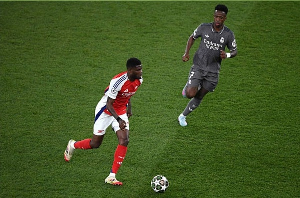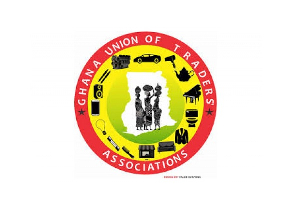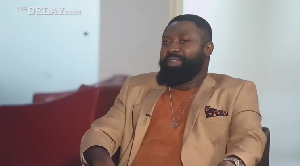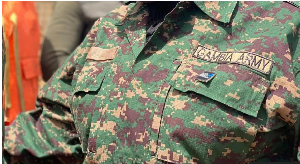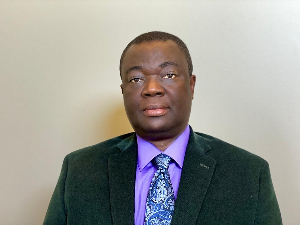Accra, Aug. 9, GNA - Ghana and the United States of America (USA) would on Thursday sign a Memorandum of Understanding (MOU) for three million dollars to support the completion of feasibility studies for the Millennium Challenge Account (MCA) projects.
Ghana is expected to receive 290 million dollars grant from the MCA to support and modernise agriculture in the Eastern, Central and Northern Regions for the next four years.
President John Agyekum Kufuor announced this at his third press conference held at the Castle, Osu, on Tuesday to throw light on policy direction and vision for his second term of office.
The main context of the 30-minute address was on the economy, agriculture, social services, infrastructure, governance and foreign relations. It also centred on politics and social issues.
The first media encounter was after his 100 days in office on April 18, 2001 while the second was 21 months later on October 3, 2002. President Kufuor said agriculture in particular would receive a boost under the MCA for extensive irrigation projects in the Afram Plains in the Eastern Region for commercial and mechanised farming on about 15,000 hectares for cereals, groundnuts, yams and other foodstuff production.
About 4,000 hectares in the Efutu-Awutu-Senya District in the Central Region and 8,000 hectares in the Savelugu-Nanton District in the Northern Region would concentrate on horticultural produce, mainly pineapples, citrus and mangoes.
President Kufuor said the government expected private investors, farmers, warehouse operators, processors of agricultural products as well as wholesalers and retailers to take maximum advantage of the opportunities that were certain to emerge in the wake of these developments.
He said the President's Special Initiatives (PSI) had remained on course and China had expressed interest in importing cassava and shea butter needed for the colder parts of that country, while the PSI on cassava and oil palm were proceeding apace.
President Kufuor said cocoa production of 650,000 tonnes remained impressive and the price was better than that of last year.
On the economy, President Kufuor said it was on the path of steady growth, adding that prudent macro-economic policies and disciplined financial management had resulted in a steadily declining level of inflation, which stood at 15.7 per cent as at June ending. He said the Central Bank's confidence in the economy showed in the progressive lowering of its prime rate and the commercial banks were responding, though not commensurately enough yet.
"At the moment, the Bank of Ghana's prime rate is 16.5 per cent and among the commercial banks some are quoting 23 per cent and others up to 28 per cent. Given this trend, Government's ambition is to work the lending rates down to about 15 per cent in the near future." President Kufuor said another significant development in the sector was that the Bank of Ghana had reduced the level of its secondary reserves to make more funds available for on-lending to customers as a means for the Government to provide credit for private sector development and employment generation.
He said as a result of this fiscal discipline, the cedi exchange rate had remained relatively stable in relation to the dollar and had appreciated in nominal and real terms against the British pound and the euro making planning possible and business more predictable. Answering questions on the economy, President Kufuor called for the deepening of the base of the economy to change its face and structure. He said with the Highly Indebted Poor Countries (HIPC) Funds and the B+ rating by the international organisation Standards and Poors coupled with the total debt cancellation by the G-8 many international banks were ready to assist Ghana to gain access to the international bonds market.
President Kufuor said measures taken by the Government to access Foreign Direct Investment (FDI) were reduction in corporate taxes from 32 per cent to 28 per cent in this year's budget and further reduction to 27 per cent by next year.
Others, he said, were the creation of Free Zones for investors to establish businesses and export their products to generate employment and the suitable geographical location of Ghana being near to European and US markets as well as the peace and stability prevailing in the country.
"By these developments, we aim to become a middle-income country by 2015. We need to have accelerated growth and increased GDP to do that. We are already at 600 dollars per capita income, confirmed by the IMF." President Kufuor said the country was doing well and but for the uncertainties of crude oil prices, it should be doing better still.
"That is why we must continue to pursue our positive policies, which in spite of obvious setbacks, are resulting in the achievement of our collective vision and aspiration," he said.
General News of Tuesday, 9 August 2005
Source: GNA


